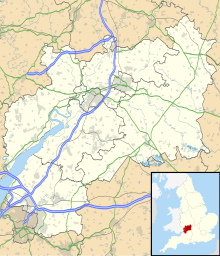| Site of Special Scientific Interest | |
| Location | Gloucestershire |
|---|---|
| Grid reference | SO662166 |
| Coordinates | 51°50′51″N2°29′29″W / 51.847419°N 2.491348°W |
| Interest | Biological |
| Area | 15.69 hectare |
| Notification | 1998 |
| Natural England website | |


Westbury Brook Ironstone Mine (grid reference SO662166 ) is a 15.69-hectare (38.8-acre) biological Site of Special Scientific Interest in Gloucestershire, notified in 1998. [1] [2]
